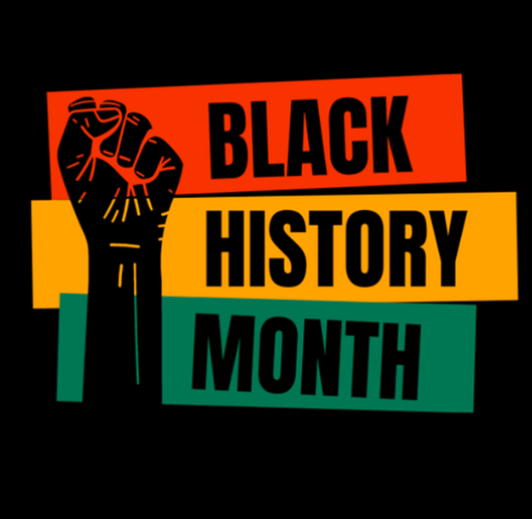Photo Courtesy of Columbia SPS Website
Though Black History Month may be over, the spirit of it remains in the halls of Fieldston High School. This is due to the success of the Black History Month assembly held by the African Diaspora Club. The assembly, held on Thursday, February 23, can be fairly called a resounding success–much due to the efforts of Sira Basse (Form VI) and Paulina Woods (Form VI), who led the club in meetings, sought out outside talent and made the entire assembly possible. The overarching theme of the assembly was Black art, and the influence it has on today’s modern mainstream culture.
The assembly opened with a thirty-minute performance by two performers from Harlem School of the Arts. They began with an acapella rendition of Beyonce’s 2016 anthem and protest song, “Freedom (featuring Kendrick Lamar)” before launching into spoken word poems, dance and an excerpt from “Breakfast in Virginia”, a short play written by Langston Hughes, performed with Star Blakney (Form V) and Nate Russo (Form VI).
Next, we heard a speech from Chloe Jean and Juliette Reed (Form IV) about Black music and the influence Black artists and Black music on culture. They spoke about how despite the fact that pop culture simply is Black culture, the white community as a whole fails to acknowledge Black artists for their contributions to pop culture and mainstream music. They pointed to how only 11 Black artists have ever won the Grammy Award for Album of the Year. In the same vein, Upper School Director of Community and Inclusion Russell Marsh led an interactive activity in which he encouraged students in the audience to shout out popular music artists and genres with him, then he traced them all back to Black music. These shout-outs included the genre KPOP, which Marsh quickly traced back to hip-hop and R&B, and the singer Elvis Presley, to which Marsh shared that Elvis frequently stole the music and “sound” of many Black artists without crediting them. The speeches—combined with the interactive activity, taught a powerful lesson to the student body that the majority of our culture and so much of the media we consume, particularly music, is indebted to Black artists.
Arianna Laureno-Medina (Form III) then gave a speech about Black hair, and the importance our hair and hairstyles have on our identities as Black people. Laureano-Medina’s words were passionate and heartfelt. She ended her speech by saying: “When we straighten our hair, people will say that we’re white-washed, or we’re trying to imitate white people. It’s important that we recognize this and make sure that little Black girls know that not only is their hair a work of art, but they are too.” Sharjah M Bodji (also Form III) then took the stage to share a speech entitled “The History of Hip-Hop” in which she explained the deeper meaning behind the lyrics we all know in love and the fact that hip-hop was not only created for entertainment purposes, but also as a “protest genre” of music, and as a way for Black artists to speak up against oppression through music. M Bodji ended her speech by reading a poem, written by her mother Sarah M Bodji, in the 90’s. The impactful poem which the younger M Bodji delivered with strength and passion, included the heartbreaking line “ Martin, Tupac, Big, The Notorious/Murder seems so glorious and not even a second of silence/And tomorrow? Just more violence/How many more gotta die?”
Abena Koomson-Davis, the Ethics Department Chair of the Middle School, performed an original song which she composed herself, entitled “Manifesto”, a-capella, to thunderous applause. The song uplifted the spirits of all who were lucky enough to hear it. As the penultimate presenter in the assembly, Paloma Hostin (Form V) shared her own artwork, a breathtaking piece entitled “Ironsick; Liberosis; Roots”. Hostin explained the meaning behind the artwork and the title, “This painting is the symbolic representation of my progression through life,” said Hostin. “My past: represented by the hands covered in ivy. Not my hands, but the hands of others in a predominantly white institution, reaching out, causing an allergic reaction of constant hair straightening and self-doubt. My present: the moss, which expands and grows over time, representative of my current development as a person, acceptance of my hair, and myself. My future: the roots, which engulf the canvas, enveloped and merged with the moss; a statement, and a reminder, that you can’t take away something that’s embedded within my culture, my identity, and my being.”
To close out the assembly, I sang the song “Home” from the 1974 musical “The Wiz”. “The Wiz” was turned into a film starring Diana Ross and Michael Jackson in the year 1978, which was both a critical and commercial failure. However, overtime, the film has become a cult classic in many Black households and the music remains as timeless and glorious as ever. The overarching theme of the assembly was the way Black people have been able to take their oppression and turn it into culture-defining art, despite living in a society that tries its hardest to oppress us. It is my belief that the assembly was a resounding success in getting that message across and a fantastic reminder of the resilience and genius of Black people.






